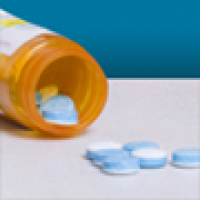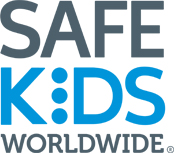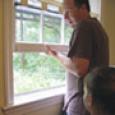Testimony of a Two-Year-Old

According to the family historian, I was not to be trusted.
At age two, I had been left alone for about a minute when I was discovered sitting in my parents' bedroom with a bottle of aspirin -- cap off, bottle upended, contents strewn about. (Clever girl!)
But instead of the anticipated expression of delight at my amazing accomplishment, my mother’s expression was quite the opposite. "Did you eat any of those?" she demanded, her face registering horror.
Well, any two-year-old who has been paying attention knows the answer to that question should be, "No," accompanied by an innocent expression, reinforced with a shake of the head for emphasis.
But any mom who has been paying attention wouldn't buy that answer, so I was whisked to the doctor to have my stomach pumped.
According to the family historian, I didn't like it.
Fortunately, today's two-year-olds find it harder to get into a bottle of aspirin thanks to child-resistant packaging. And, over the past fifty years, the life-saving work of Poison Control Centers has also helped dramatically decrease the death rate among children who accidentally swallow medicine when a caregiver is not looking.
But here's a rather shocking trend. In 1979, one-third of all poisoning deaths among children in the U.S. were due to medications. Today, that number has doubled to two-thirds of all poisoning deaths. Why?
Perhaps the biggest reason is the proliferation of medicines in households today, increasing the opportunities for curious kids to get into danger. In 2012 almost 64,000 children were sent to the emergency room because of an unintended exposure to medicine. That’s one every eight minutes. And every one of those trips could have been avoided.
Here are three scenarios where bad things happen, even under the watch of diligent parents. (I have been guilty of all of these; maybe you have, too.)
- Medicine is usually stored safely up and away and out of sight, but when someone in the family is sick, the medicine is pulled from the remote location and kept handy. “Handy” is good for convenience, but tempting for curious little ones.
- Daily vitamins are kept on the counter as a helpful reminder, instead of out of reach.
- Most parents and grandparents know to keep medicine up and away, but they may not be thinking about pills in purses or medicine in nightstands. We found that in 38% of emergency room visits where a child had gotten into medicine, the medicine belonged to a grandparent. Those daily pill boxes that are so convenient are a cinch for kids to get into.
Do any of these situations ring true for you? Check out Safe Kids Worldwide’s Medication Safety Guide for tips on safe storage, safe dosing, safe disposal and safe seniors.
My family teases me that I was destined to work at Safe Kids Worldwide from the time I was two. I don't remember having my stomach pumped, but perhaps that's why today, deep in my gut, I feel driven to tell parents how to protect kids from preventable injuries. Visit Safe Kids often to learn what you need to know to keep your kids safe.
One last thing, just to set the record straight. According to the family historian, the stomach pumping revealed I was telling the truth.



